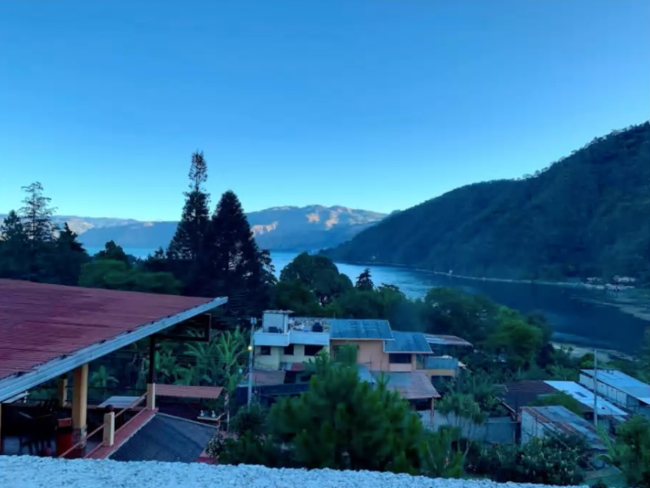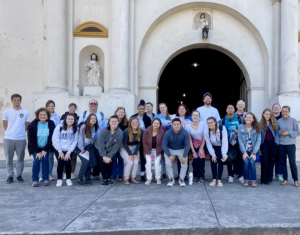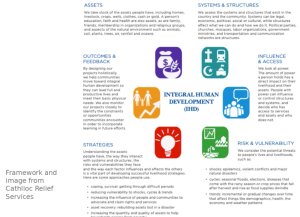Guatemala was on its way to becoming an independent community that was starting to flourish on its own until the impact of Covid-19 and climate change set it off track, two Cabrini students who visited Guatemala said.

“Luckily in San Lucas, they have been doing rather well with containing covid and taking safety precautions and keeping the community safe,” Aislinn Walsh and Amy Kodrich, senior digital communications and social media majors, said.
Cabrini held its annual Cabrini Day on Tuesday, Nov. 10. This year’s theme was COVID-19 and human dignity and was held mainly online. The session by Walsh and Kodrich was titled “The application of integral human development in San Lucas, Guatemala.”
Walsh and Kodrich began the presentation with an explanation of integral human development. They said that with a life with dignity the community can be empowered to make changes in their lives with the confidence inside themselves.

The two women, along with other Cabrini students and faculty, visited Guatemala right before COVID-19 hit. They both agreed that it was a great experience for the whole class to do this all together.
Walsh and Kodrich described the mission and programs throughout San Lucas that helped the people living there change their lives and provide the community with the resources they needed. They said they could see examples of this in the community when they took their trip.
San Lucas, Guatemala, is about three hours west of Guatemala City at the side of a lake with surrounding volcanoes and mountains that provides rich soil for the production of coffee. Coffee production helps individuals make minimum wages to live.
They are one of the world’s top coffee producers, but climate change is affecting the plants in a negative way. The rising temperatures are causing rust, or fungus, on the plants making it difficult for farmers.
In 1963, Father Greg Schaffer was sent to San Lucas to help address historic injustices and the immediate effects of poverty, along with its causes. When he arrived, there was lack of health care, education, food, employment, and ownership for locals because of discrimination.
Father Greg established a primary school that currently holds over 650 students annually and provided tuition assistance so that everyone has the ability to pay for school and attend.
San Lucas Mission is partially supported by the Friends of San Lucas, which is in place to continue Father Greg’s legacy. The people now have access to health care, education for everyone, construction, coffee production and advancement in women’s centers.
San Lucas was on its path moving forward and getting better until the coronavirus the hit. Developing countries like Guatemala have the risks of economic instability, increased health risks and education risks.
San Lucas now faces the hardships of having to fundraise for hospital equipment and commitments to serve, all school work being online and the distribution of meals between families.

Catholic Relief Services gave an integral human development framework that includes how to help communities who are in need just like this one. To learn more visit Friends of San Lucas, Integral Human Development and Cafe JuanAna.


